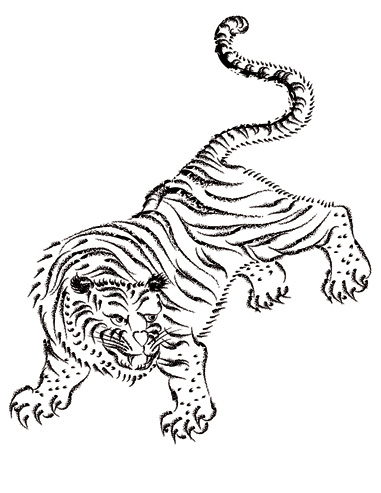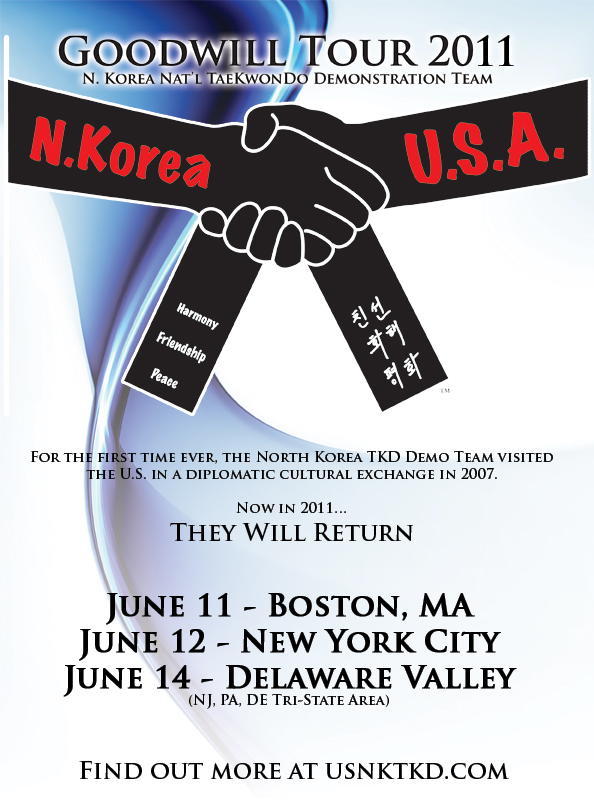
A PAPER-THIN ROAR
Another controversial mainstream piece on Asian Americans—this time in New York magazine (yes, tigers are involved again)—sets off a firestorm of reaction. This writer imagines “Paper Tigers” author Wesley Yang is loving every minute of it.
by Eugene Yi
A FRIEND OF MINE once took a class on the art of magazine writing. The instructor on the first day divulged her secret to a long career writing columns for a variety of nationwide glossies: Turn yourself into a stereotype. If you’re Jewish (as she was), make your mother a Yente and your father Zero Mostel, Mel Brooks and/or Woody Allen. If you’re Chinese? Well, Yale law professor and author Amy Chua has done pretty well for herself as the “Tiger Mom,” despite her exhortations that the nuances of her memoir have been glossed over by a mainstream media obsessed with stories of denied pee breaks pending commitment of the intricacies of the minuet to muscle memory.
And if you’re Korean? Well, you can take Wesley Yang’s very long, very strange, and almost embarrassingly personal account of his life experiences as an Asian American in New York magazine . The story, published last month, has sent an Asian American community already on the defensive from accusations of heartless tigerism into a tizzy of even further pawwringing. Are we really like that? Most responses have ranged from no, to f-ck no, to f-ck you.
I would argue, though, that Yang very self-consciously embraces a deeply stereotyped posture that he knew would raise his Q score through the stratosphere. He became the Self-Hating Asian. By turns self-effacing and self-aggrandizing, he invokes as much ethnic studies fodder as he could trace back to his own experiences: Emasculation of the Asian male! The bamboo ceiling! The model minority myth! Exotification of Asian women—actually, not so much on this last account, perhaps from his acknowledged lack of experience with them. (He has, despite the knee-jerk reactions of so many website commenters, disavowed and acknowledged to supply sufficient rearguard).
New York magazine provided a big assist, with its layout team arraying the naked-seeming pictures of Yang and three other Asian men, making the article seem like some combination of the mirror-eye view in Travis Bickle’s room and the Dove campaign featuring plus-sized models. All to spend 9,000-plus words riffing on a simple message: being Asian kind of sucks. His thesis-y section:
But absent from the millions of words written in response to [Chua’s] book was any serious consideration of whether Asian-Americans were in fact taking over this country. If it is true that they are collectively dominating in elite high schools and universities, is it also true that Asian-Americans are dominating in the real world? My strong suspicion was that this was not so, and that the reasons would not be hard to find. If we are a collective juggernaut that inspires such awe and fear, why does it seem that so many Asians are so readily perceived to be, as I myself have felt most of my life, the products of a timid culture, easily pushed around by more assertive people, and thus basically invisible?
He’s swinging for the bleachers here, softly invoking Ralph Ellison’s Invisible Man, which had a thing or two to say about African American identity in the 20th century. Yang goes on to list examples to illustrate the invisibility, the meekness he feels to be endemic in Asian American men. Scratching the surface of any of his examples reveals unmentioned complexities. Tony Hsieh, CEO of Zappos, comes across as just another Asian American trying to overcome his Chinese upbringing. This deeply undersells his early success (he made hundreds of millions by the time he was 23), his abiding quirkiness and the offbeat culture he has instilled in Zappos. JT Tran, the Asian playboy who teaches Asian men how to score with white women, also sells a video on his site that teaches you how to pick up Asian women; suddenly, he’s no longer preserving the territorial integrity of Asian American masculinity. He’s just a common pimp.
But I’m not interested in a deeper analysis of Yang’s examples. They serve his purpose, and that’s why he frames them that way. What I do find interesting are reactions like this. On Salon’s Culture Gabfest podcast, one of the hosts (I couldn’t really tell their voices apart, but she was not the designated Asian American on the show) read Yang’s sixth paragraph out loud:
Let me summarize my feelings toward Asian values: F-ck filial piety. F-ck grade-grubbing. F-ck Ivy League mania. F-ck deference to authority. F-ck humility and hard work. F-ck harmonious relations. F-ck sacrificing for the future. F-ck earnest, striving middle-class servility.
She found it to be a call to arms. Absent a lifetime of actually being Asian American, it’s easy to see why she might have thought so. Most Asian Americans, from the looks of the online discussion, saw it as an existential threat.
We live in a strange time, where societal advances in racial tolerance have allowed race to take a place among the other factors that can mold an individual. For some, it is a primary factor; for others, it drops down on the list. But try and explain to someone the curious disconnect that derives from the DuBoisian double identity. Of having a face you show to mainstream American society, and a face you show the people who look like you, and the pressure that you feel to place one at odds with the other in certain situations. Try and explain that to a member of the average multi-generational European American family. You’ll get a quizzical look. They might tell a story about being at a party where they were the only white person. They might even blurt a disbelieving, dismissive, “Well, that’s not that bad, right? I mean, it’s not, like, racism.” To which one can only answer, well, no, it’s not Jim Crow, it’s not separate water fountains. It’s not the House and the Field. It’s not coolies on the railroad tracks. But it’s something.
Yang, for whatever it’s worth, has done Asian America a service. He has introduced a vision of Asian America that is neurotic, rife with its awareness of its place outside the mainstream of American life, rivaling that of any _______-American. All by taking how they look at us, and talking about how he’s internalized it. Because we are not them.
 In this way, Yang is echoing the work of his second-generation forebears descended from backgrounds German, Irish, Jewish, Italian, Mexican, and, well, everything else. And the eternal feeling among them, among us, has been that there’s a castle on a hill, and all you can see are the walls. Yang calls for us to join those who’d storm the sh-t out of the castle. And for everyone who’s ever been called a kraut, a mick, a kyke, a wop, a spic, or a gook, who’s suffered at their hands, or who’s ever had a moment when s/he wanted to just be one of them, who sees a society that is lily white and judgmental and distant, well, they—and we—have all felt exactly the same damn thing. Because they used to be us.
In this way, Yang is echoing the work of his second-generation forebears descended from backgrounds German, Irish, Jewish, Italian, Mexican, and, well, everything else. And the eternal feeling among them, among us, has been that there’s a castle on a hill, and all you can see are the walls. Yang calls for us to join those who’d storm the sh-t out of the castle. And for everyone who’s ever been called a kraut, a mick, a kyke, a wop, a spic, or a gook, who’s suffered at their hands, or who’s ever had a moment when s/he wanted to just be one of them, who sees a society that is lily white and judgmental and distant, well, they—and we—have all felt exactly the same damn thing. Because they used to be us.
And, of course, Yang knows this. But he also knows that by becoming the stereotype of the Self-Hating Asian, he’ll get a lot more people talking. I imagine him giggling at the reception of his article, at the hundreds of comments on hundreds of websites, at the “yeah, but’s,” at the protesters he might get at the public reading of whatever book he’s working on that he’s now sure to publish. It’s almost as if he realized something after he wrote these words in reaction to Chua’s Battle Hymn of the Tiger Mother on his blog for the Paris Review last January:
A dignified, nonhysterical account of our peculiar sufferings untethered to the American upper middle class’s Ivy League fixation and (richly justified) fear of national decline remains elusive.
Yang’s article is not this account; it is undignified, hysterical and about nothing but the mentioned tethering. He did not write the article he seems to have wanted at that point. Compare to his paragraph about Chua’s book in his New York magazine story:
She had set out, she explained, to write a memoir that was “defiantly self-incriminating”—and the result was a messy jumble of conflicting impulses, part provocation, part self-critique. Western readers rode roughshod over this paradox and made of Chua a kind of Asian minstrel figure. But more than anything else, Battle Hymn is a very American project—one no traditional Chinese person would think to undertake. “Even if you hate the book,” Chua pointed out, “the one thing it is not is meek.”
Coming where it does, near the end, shortly before his exhortation to “do something interesting,” it seems like he could be talking about his own article. I would wager he is.
For all of us who would’ve loved the “elusive” discussion he alluded to, for all of us who just want smart people to have a roundtable discussion on Charlie Rose or NPR to explain what’s going on, Yang decided those panels bore the snot out of people. They don’t work. The way to have people start talking is to say “f-ck” a lot and piss people off. The way to have people start talking is to become a stereotype. But the dullness of the tool has led to dullness in the discourse. Perhaps he just wanted everyone to talk about him and, by proxy, Asian America. Well, it worked.
This article appeared in the June 2011 issue of KoreAm.







